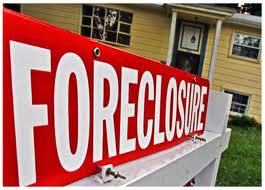Given the current economic uncertainties and the end of many pandemic related programs preventing foreclosure, many people are again facing the threat of foreclosure of their homes. Chapter 13 bankruptcy can be a powerful tool to help people retain their property. In most cases I find Chapter 13 to be a far better option than the typical mortgage modification offered by mortgage lenders. Those mortgage modifications, even if approved, can lead to people paying interest on interest and eating up what equity they may have in their homes. The modification process is also layered with uncertainty and uses up precious time. Stories of lost paperwork and conflicting instructions are frequent with the mortgage modification process.
By contrast, filing Chapter 13 bankruptcy triggers an automatic stay. This halts all collection efforts, including foreclosure proceedings, providing the debtor with immediate relief. Chapter 13 involves creating a repayment plan, typically lasting three to five years. This plan outlines how the debtor will repay creditors, including mortgage arrears, through manageable monthly payments. Chapter 13 filers can include past due mortgage payments (arrears) in the repayment plan, allowing debtors to catch up on missed payments over the course of the plan instead of all at once. Payments on the arrearage won’t accrue interest as they typically do with a mortgage modification. The Chapter 13 filing also allows the debtor to immediately start making the regular mortgage payment again so that the arrearage doesn’t continue to grow. That’s why filing Chapter 13 sooner rather than later often makes the entire process smoother because every day that goes by without the Chapter 13 being filed means the arrearage is growing. http://thompsonlawoffice.net/791/mortgage-payment-defaults-in-chapter-13-bankruptcy/
One of the primary benefits of Chapter 13 is the ability to keep valuable assets, such as a home. If the debtor successfully completes the repayment plan, they can retain their property and they’ll receive a discharge of any remaining unsecured debts (other than nondischargeable debts like student loans).
If you’re facing foreclosure don’t wait long to contact Nancy L. Thompson Law Office PC about a possible Chapter 13 bankruptcy to get back on track making mortgage payments and curing the payment default before it grows too high to paid, even over the next 3-5 years.



